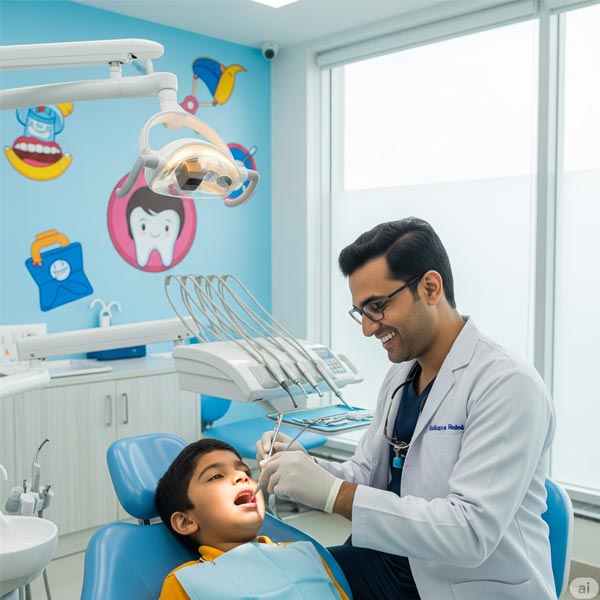What is Pedodontics?
Pedodontics is also known as pediatric dentistry. To protect the milk and permanent teeth of 0-13 age group children in a healthy way; It is a department that aims to eliminate the problems caused by caries, trauma, hereditary and similar factors in these teeth. It includes very important applications for the person to have a healthy mouth structure in later ages
Key aspects of Pedodontics include:
- Child-Friendly Environment: Pedodontic practices are designed to create a child-friendly and welcoming environment to help children feel comfortable and at ease during dental visits.
- Preventive Care: Emphasizes preventive dental care, including regular check-ups, cleanings, fluoride treatments, and dental sealants to prevent tooth decay and other oral issues.
- Early Intervention: Identifies and addresses dental problems early, such as misaligned teeth or bite issues, to prevent further complications and ensure proper development of the child’s teeth and jaws.
Behavior Management: Utilizes techniques and approaches to manage children’s behavior and anxiety during dental visits, making the experience pleasant and stress-free for both the child and the parent.
Oral Health Education: Educates children and their parents or guardians on proper oral hygiene practices, diet, and other preventive measures to maintain good oral health.
Treatment of Dental Issues: Provides a wide range of dental treatments specifically tailored for children, including fillings, crowns, root canals (pediatric endodontics), extractions, and management of dental trauma.
Orthodontic Assessment: Monitors and assesses the growth and development of the child’s teeth and jaws to determine if orthodontic intervention is necessary for correcting bite and alignment issues.
Special Needs Dentistry: Addresses the unique dental needs of children with physical, developmental, or intellectual disabilities, providing specialized care and accommodations to ensure their dental health.
Sedation and Anesthesia: Utilizes safe and appropriate sedation techniques when necessary to ensure a comfortable and pain-free dental experience for the child, especially during extensive treatments or for anxious patients.
Dietary Sugars
Avoid fruit juice below 12 .Avoid regular sipping of sweet drinks, putting the child to sleep with a bottle of formula, or falling asleep with the breast nipple in their mouth at night.



